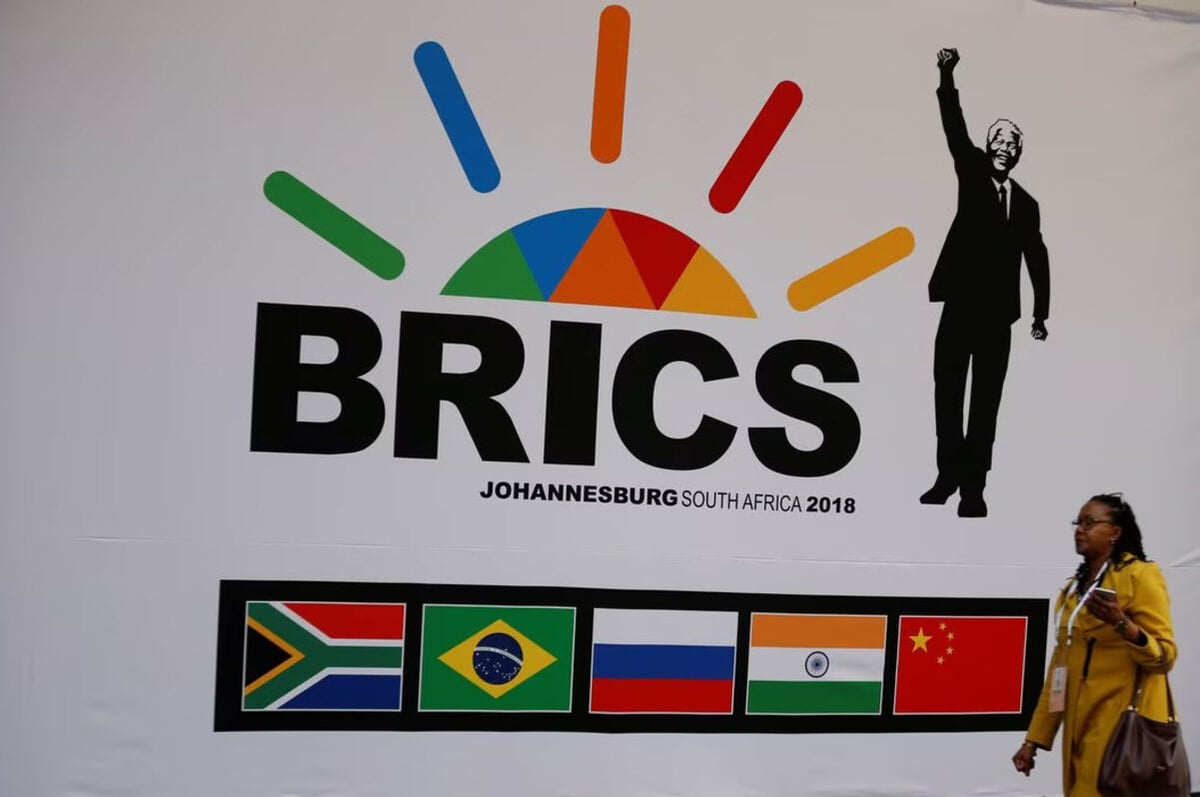On Tuesday, the leaders of the BRICS nations, namely Brazil, Russia, India, China, and South Africa, are set to commence a summit in Johannesburg. During this gathering, they will deliberate on the possibility of enlarging their membership as certain members advocate for transforming the bloc into a formidable force to balance the influence of Western countries.
Read more: BRICS summit 2023: Dates, location, discussions and attendees
The ongoing conflict in Ukraine and the escalating rivalry between China and the United States (U.S.) have intensified global tensions, providing added impetus to the efforts aimed at bolstering the BRICS bloc. Over time, the bloc has encountered internal divisions and a lack of a unified vision. However, these recent developments have underscored the urgency of strengthening the bloc and fostering greater cohesion among its members.
In an address preceding the meetings, South Africa’s president, Cyril Ramaphosa, expressed that an expanded BRICS would encompass a diverse collection of nations with distinct political systems. He further highlighted their shared aspiration to establish a more equitable global order.
The agenda also includes efforts to enhance the utilization of local currencies among member states. Nevertheless, the South African summit organizers have clarified that discussions regarding a BRICS currency will not take place. This idea was previously suggested by Brazil as a potential alternative to reduce reliance on the U.S. dollar.
From August 22 to 24, South African President Ramaphosa will play host to Chinese President Xi Jinping, Brazil’s Luiz Inacio Lula da Silva, and Indian Prime Minister Narendra Modi.
Instead of traveling to South Africa, Russian President Vladimir Putin will participate virtually in the summit.

Contentious point
Broadening the membership has been a longstanding objective for China, a prominent member of the bloc. China envisions that an expanded membership will enhance the influence of the group, which already encompasses approximately 40 percent of the world’s population and a quarter of the global GDP.
On Tuesday evening, the leaders will convene for a mini-retreat and dinner, during which they are expected to engage in discussions regarding the establishment of a framework and criteria for the admission of new countries into the bloc.
However, the issue of expansion has become a contentious point among the member nations. Russia is particularly eager to invite new members to counterbalance its diplomatic isolation resulting from its invasion of Ukraine. South Africa has also expressed its support for the idea of expansion.
On Monday, India’s Foreign Secretary Vinay Kwatra stated that India approaches the expansion issue with a “positive intent and an open mind,” while expressing caution about Chinese dominance and the need to avoid hasty expansion. Brazil, on the other hand, has raised concerns regarding the potential dilution of its influence as the BRICS bloc grows larger.
While the possibility of BRICS enlargement is still uncertain, the bloc’s commitment to champion the interests of the developing “Global South” and provide an alternative to the dominance of wealthy Western nations in the global order is already gaining support and recognition.
Growing interest
According to South African officials, more than 40 countries have shown interest in joining BRICS. Among them, nearly two dozen have officially submitted requests for admission. These include Saudi Arabia, United Arab Emirates (UAE), Egypt, Algeria, Argentina, Bolivia, Indonesia, and Ethiopia. Cuba, Democratic Republic of Congo, Comoros, Gabon, and Kazakhstan, have also expressed their interest in joining the bloc.
For more economy-related news, click here.








